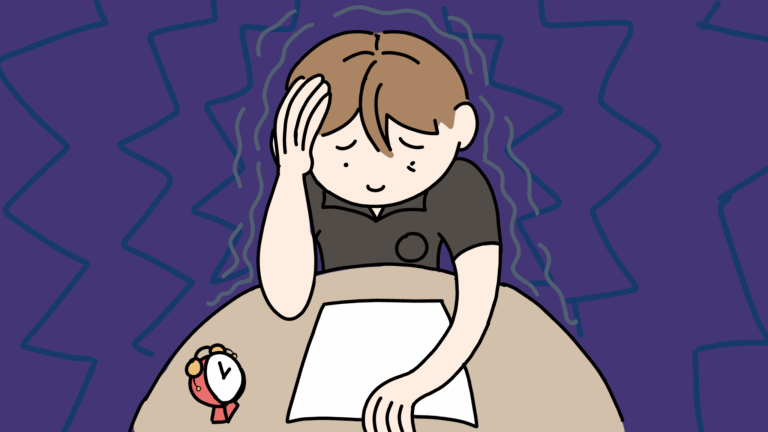Ever since the pandemic started, work has been more tiring.
For me, especially when we were online for school at the end of ninth grade, it felt as if there was no respite from work. I would stare blankly at a screen for eight hours every day trying to process information through online lessons. Then, as soon as school was over, there was homework to do, which also was done on a screen. And once that was done, what else was there to really do? I couldn’t go outside to do stuff; restrictions mostly prevented that. I could go out for a run or play the piano, but that wouldn’t occupy all of my newfound free time at home. Ultimately, when I needed entertainment I ended up back on a screen, whether it was reading online news or watching YouTube. Increasingly, as the months wore on it became significantly harder to focus or even feel motivated, and I felt burnt out.
What is burnout? According to virtueremote.com, a software company that builds measurement technology for medical purposes, there are five stages to burnout. The first phase, called the honeymoon phase, is a time of great contentment, whether that be during school or a job. Next comes the onset of stress, where your work begins to take too much importance in your life. After, this comes chronic stress, which is when you experience long term stress. In this stage, Your productivity and overall mental health start to take a dive. Fourth is burnout, which is when your motivation starts to really decline, and you feel a sense of hopelessness. Last comes habitual burnout. At this point, it can be extremely difficult to escape the feeling of being burnt out, and it becomes part of your everyday life.
As I look back at my time during quarantine, I can see where I went through some of these stages. However, it wasn’t so much that my school work was too important to me (stage 2), but rather it was just the monotony of being stuck at home, with technology being a constant part of my life. Spending the majority of my time staring at a screen became exhausting. Being stuck in my room for the entire morning and afternoon became exhausting. Scrolling on my phone for hours became exhausting. Nearly every aspect of quarantine felt fatiguing. When we finally began to have concurrent online and in-person classes, I was relieved, but it didn’t end the feeling of being burnt out.
Now, even though I’ve returned to in-person classes every day, being burnt out remains an issue. At the beginning of the semester, school work felt fairly easy. I was optimistic about my AP classes and their workloads. But as the year went on, school work began to pile on. As December rolled around, I felt completely burnt out again. It seemed that teachers assigned us quizzes, tests, and projects weekly. I don’t think I can remember a single week during the last half of the quarter where I did not have an assessment. When finals week arrived, I felt so tired that I had no motivation to study. There were times where I told myself I would review some concepts, but I felt so exhausted that I just laid down in my bed doing nothing. A lot of nights, I would just procrastinate until 10 p.m., before finally being productive. In the end, I would study past midnight the nights before my exams, but still not as much as I would have liked to.
So what do I propose to fix this issue? For me personally, I’ve noticed several things that have already helped me this quarter.
- Try to finish as much work as possible at school. I’ve noticed that I am significantly more productive while I work at school. The atmosphere is different and it’s easier to focus.
- Work with friends. Although I know I am less productive when working with someone, I can work for longer and feel less tired afterwards. Often, I work together with a friend in the library or on FaceTime.
- Procrastinate less. This may seem like a given, since every student procrastinates. It is inevitable, but trying to keep it under control will help stop burnout. It’s much easier to accomplish a few tasks every day, rather than finishing everything over the weekend. For me, breaking up my assignments into smaller tasks and not spending too much time on one thing has helped.
- Rest well. I read something on the internet that said, “If you’re resting but feeling guilt for not being productive the entire time, you’re not actually resting”. When you feel guilt while resting, you obsess over what you are taking a break from, rather than actually relaxing. Nothing is done to get rid of that stress; instead it accumulates and leads you to feel more burnt out. I often find that exercising or spending time with family and friends are a good way to rest. Although these are not things you think of concerning resting in a traditional sense, they offer rest from the task at hand, which is key to preventing burnout.







